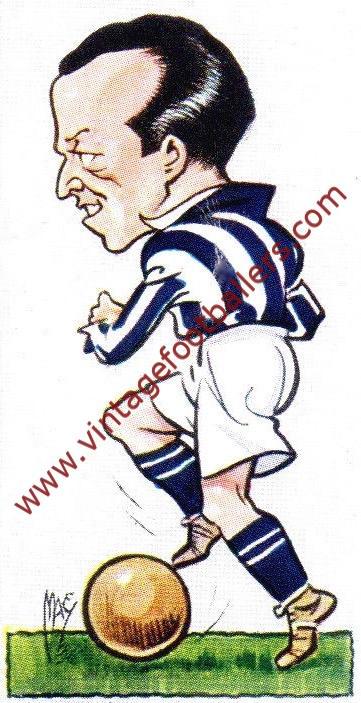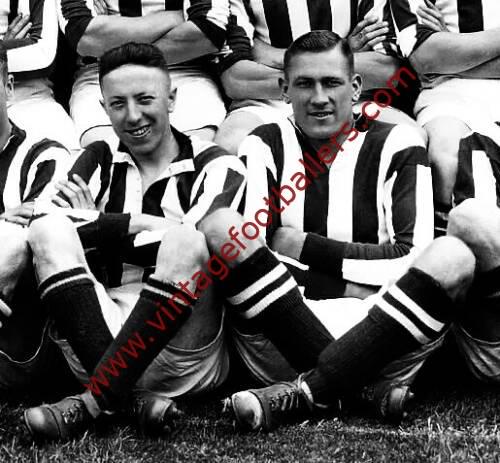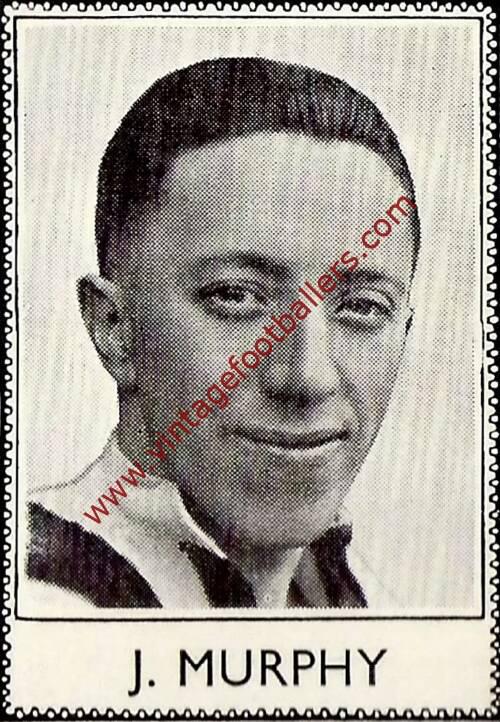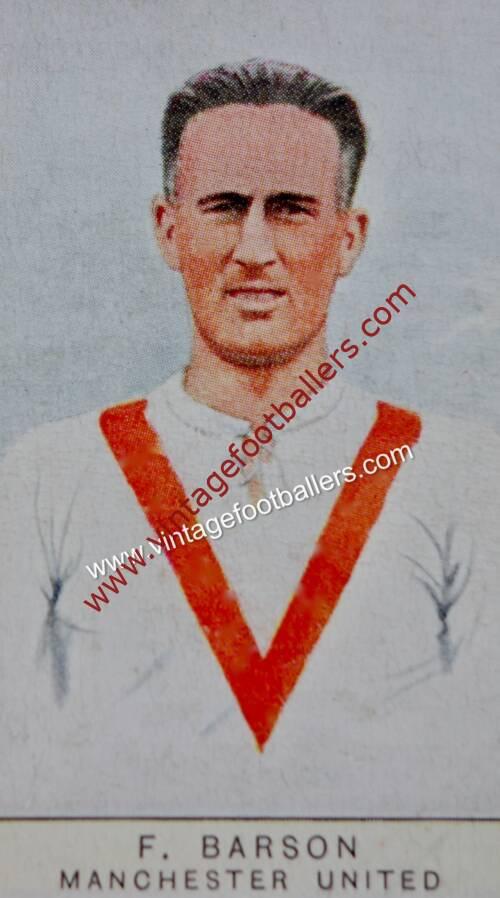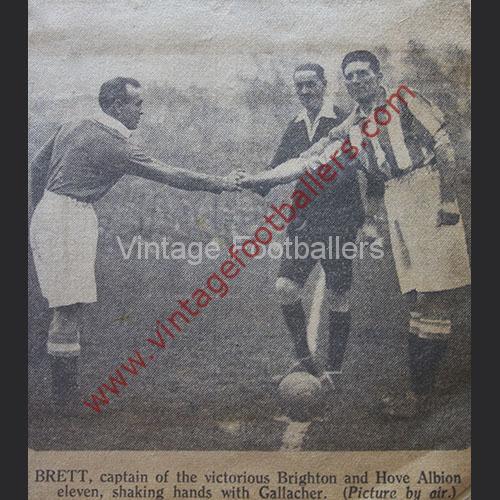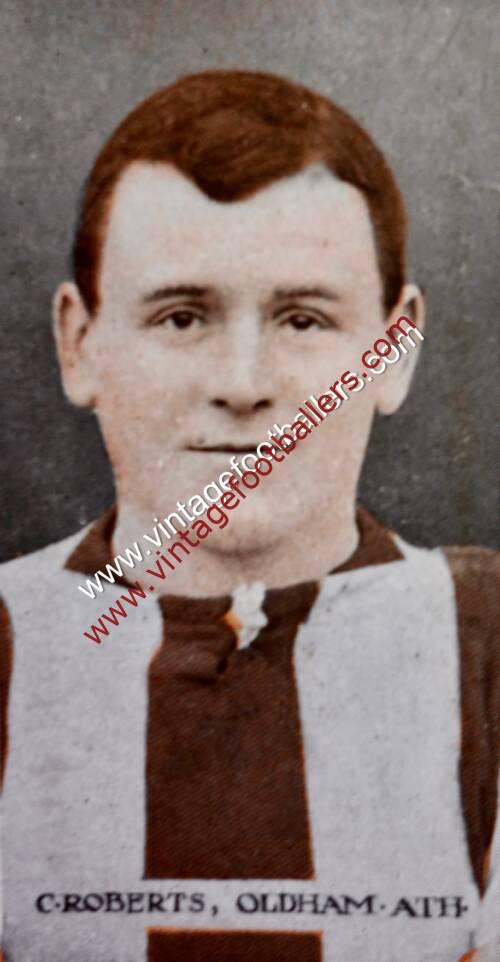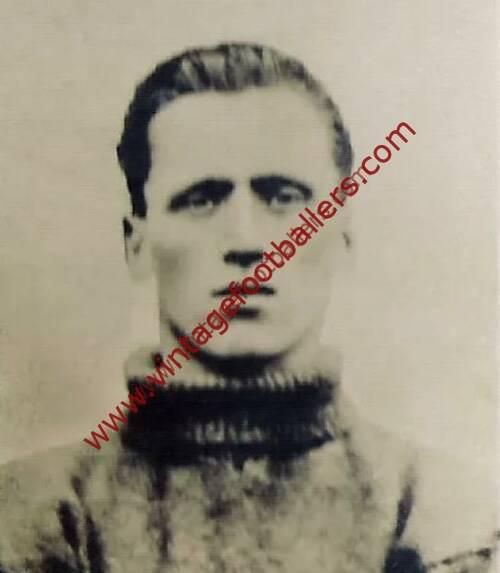Please choose your photo size from the drop down menu below.
If you wish your photo to be framed please select Yes.
Note: 16″x 20″not available in a frame.
Images can also be added to accessories. To order please follow these links
£8.95 – £49.95
Please choose your photo size from the drop down menu below.
If you wish your photo to be framed please select Yes.
Note: 16″x 20″not available in a frame.
Images can also be added to accessories. To order please follow these links
Ton Pentre, Glamorgan born wing half Jimmy Murphy played youth football for Ton Pentre Boys, Treorchy Thursday in 1925, Treorchy Juniors and Mid-Rhondda United in 1925, and in 1924 represented Wales in a schoolboy international against England in Cardiff. He turned professional in February 1928 when he joined West Bromwich Albion as a 17 year-old.
Murphy made his Football League debut in a 1-0 defeat at Blackpool on 5th March 1930 and played one further League game during his first season. In the following season, 1930-31, Albion won the FA Cup and promotion from the Second Division, but Murphy had yet to establish himself in the team and again made just two appearances. He became a regular in the Albion side upon the club’s return to the First Division breaking through into the team in November 1931; from 1931-32 to 1934-35 he appeared 149 times in League and Cup, helping his team to achieve four consecutive top ten finishes, including fourth place in 1932-33. The 1934-35 season saw Murphy miss just one match all season, and he helped Albion to reach the 1935 FA Cup Final, which they lost 4-2 to Sheffield Wednesday.
He was first capped by Wales in a friendly against France in May 1933 and went on to win 15 caps, his last coming against England in a 2-1 Home Championship defeat at Ayresome Park in November 1937.
Murphy made 223 appearances for Albion, but lost his place in 1938 before moving to Swindon Town in March 1939, but the Second World War ended his spell at Swindon almost as soon as it had begun.
During the Second World War, Murphy was giving a speech about football to a band of troops, and in attendance was Matt Busby. Busby was so impressed by Murphy’s speech that, upon his appointment as manager of Manchester United, he made Murphy the first signing of his tenure at the club. Murphy had the role of Chief Coach from 1946 until 1955, and became assistant manager in 1955 after Manchester United won their third FA Youth Cup in a row. It was Murphy’s responsibility at the club to scout and train the young footballers who were to become the “Busby Babes”, which included Duncan Edwards and Bobby Charlton. Prior to this the larger teams had mainly bought rather than developed their own players but instead Busby decided to slowly replace the older and more experienced players in his team with their youth players.
After the Munich Air Disaster of 6th February 1958, he temporarily took over as manager while Matt Busby recovered from his injuries and, having assembled a substitute team, steered United to the 1958 FA Cup Final. Murphy had not been on the fatal flight because he had been away managing the Welsh team in a World Cup qualifying game. Murphy managed Wales from 1956 to 1964, including at the 1958 FIFA World Cup Finals in Sweden when they reached the quarter-finals in their only appearance to date in a World Cup finals tournament, where they lost 1-0 to Brazil (the eventual winners), to a goal by 17 year-old Pelé.
Despite being approached to manage Brazil, Juventus and Arsenal, he remained as assistant manager at Old Trafford until 1971. Murphy chose never to become manager of the club because of his hate of the limelight, he loved working in the background but never aspired to fulfil the job of manager. From 1973, Murphy did scouting work for Manchester United, most famously during the managerial reign of Tommy Docherty, when Murphy urged Docherty to sign wingers Steve Coppell and Gordon Hill. Murphy died in November 1989, aged 79. In Murphy’s honour, Manchester United commissioned the “Jimmy Murphy Young Player of the Year Award”, to be given to the best player in the club’s youth system in the previous season. It was first awarded the summer after Murphy’s death, with Lee Martin receiving the inaugural award.
On 23rd March 2009, a blue plaque was placed on his former family home in Treharne Street, Ton Pentre.
| Weight | N/A |
|---|
